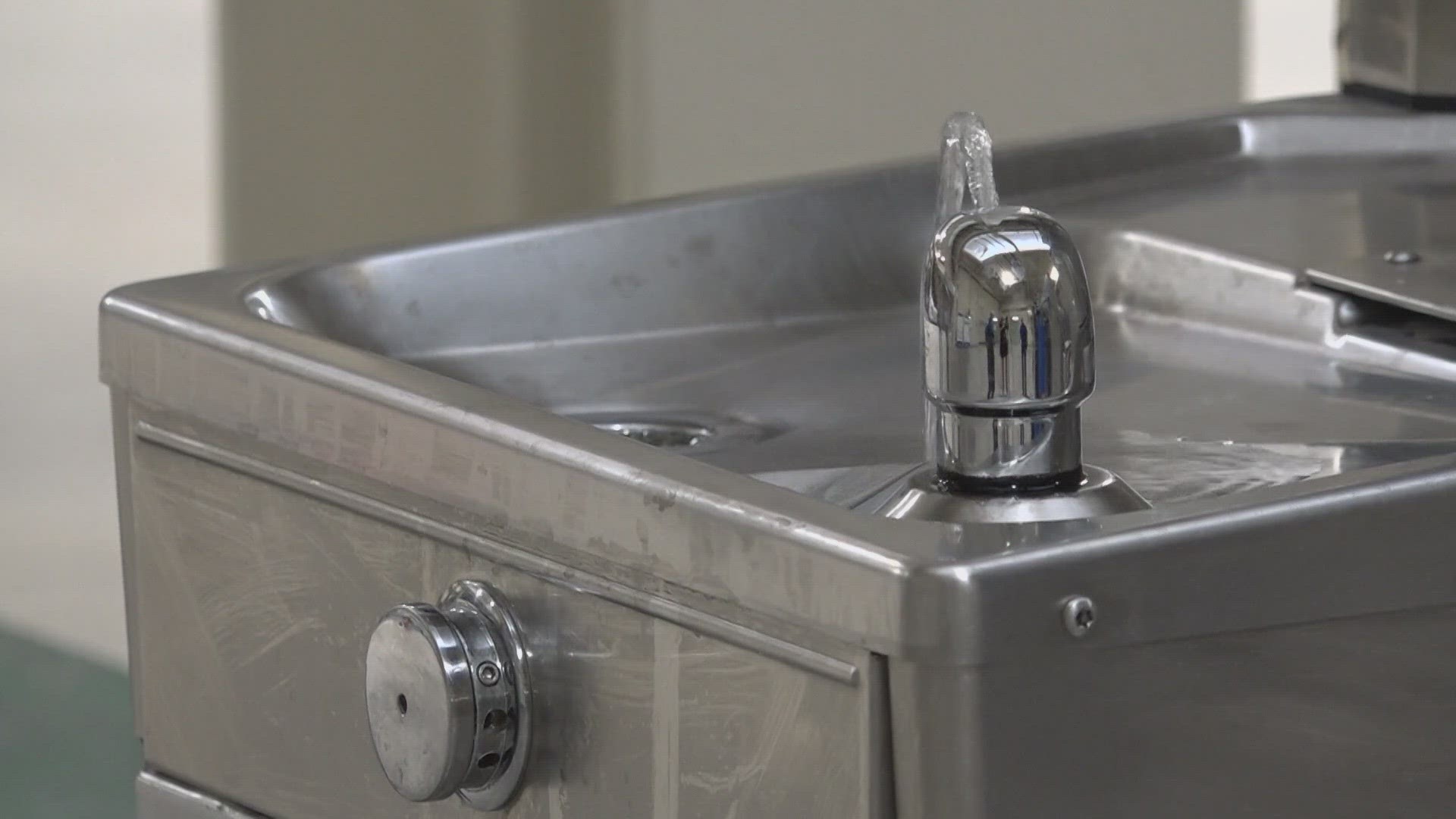PHOENIX — Arizona leaders took a moment to celebrate their success in dealing with the megadrought.
"We thank our Arizona partners for their leadership and their monumental efforts around system conservation," Camille Calimlim Touton, director of the U.S. Bureau of Reclamation, told Gov. Katie Hobbs, tribal leaders and Valley mayors who gathered Friday at Phoenix City Hall.
A wet winter, conservation efforts, and millions of dollars in federal payments staved off a disastrous depletion of Lakes Mead and Powell, the Colorado River reservoirs that provide water and electric power to the West.
But no one's declaring victory. Here's what we know:
- Arizona and the six other states that share Colorado River water have a 2026 deadline for a new agreement on allocating the water.
- Recycled wastewater that could make up for some Colorado cutbacks might reach Arizona homes by 2027.
- Arizona faces unique challenges in persuading consumers to drink the water.
Arizona at 'a Critical Point'
"We're at a really critical point for the state of Arizona," said Terry Goddard, a former two-term attorney general who is president of the Central Arizona Project Board of Directors.
The board oversees the delivery of Colorado River water to utilities, tribes and agricultural users in central and southern Arizona.
The 20-year agreement for operating Lakes Mead and Powell expires in 2026. Arizona and the six other states that rely on the Colorado River will have to negotiate a new pact, likely with greater demands for water cutbacks, according to Goddard.
"It means everybody's going to have less," Goddard said. "And that's where the real difficult stuff happens."
'Use it and use it again'
A new water source for the Valley is in the pipeline: recycled water.
"What we need in Arizona and throughout the desert West is to find some permanent ways to have water for the long haul," Goddard said.
"So that there's no such thing as sewage.... In the future, it's all water. And we're going to use it and we're going to use it again. And we're going to use it again... It's expensive. But I think that's inevitable."
The recycling process, often dismissed as "toilet to tap," purifies wastewater from sinks, showers, washing machines, dishwashers and toilets. The preferred language for the process is "Direct Potable Reuse" or "Advanced Water Purification."
Coming to your faucet by 2027?
"The technology is proven," Karen Peters, cabinet executive officer for the Arizona Department of Environmental Quality, said on this weekend's "Sunday Square Off."
"Wastewater is a very reliable source of safe drinking water, so I expect utilities will maximize the use of it."
Peters said recycled water could be coming out of your faucet by 2027.
Last week, the Department of Environmental Quality released its "roadmap" for drafting regulations for permitting wastewater treatment plants to supply drinking water.
The state Legislature has set a deadline of Dec. 31, 2024, for DEQ to finish work on the new regulations.
Peters urged the public to participate.
"We are just starting this conversation," Peters said. "We hope to work with water utilities on how to make it as practical and cost-effective as it can be. But we want to hear from everyone."
Plants in Scottsdale, Phoenix
The City of Scottsdale has purified wastewater for more than 20 years at the only treatment plant of its kind in the state, and one of just three in the country. The treated water has been pumped back into the aquifer; it hasn't been used as drinking water.
The City of Phoenix has plans for two wastewater recycling plants.
Last month, the city council approved $30 million for work at the Cave Creek Water Reclamation Plant that might provide potable water in the future.
In April, the council approved an agreement to study a regional advanced water purification facility with other municipalities.
If the recycling plants go online, they could produce up to about 20% of Phoenix’s daily output of potable water, according to a Phoenix spokesman.
Arizona's unique challenge: Trust
A consultant's report accompanying the Department of Environmental Quality roadmap shows 70% of more than 1,300 people surveyed said they were likely to drink the purified wastewater.
But the report highlights unique challenges in Arizona for gaining popular support for recycled water: "A lack of trust due to a political divide."
"Even if scientific facts about the process are presented," the report says, "the perception is that if the entity or leader presenting those facts is affiliated with a particular political 'team' there would be instant opposition."
Already drinking Vegas' recycled water
Even without state approvals, Valley residents are already drinking treated wastewater - from the Las Vegas Strip.
The Clark County Water Reclamation District pumps back millions of gallons of purified wastewater into Lake Mead, a major water source for the Valley.
Every gallon of recycled water allows southern Nevada to take a gallon from the Colorado River.
Sunday Square Off
Watch previous interviews and segments of Sunday Square Off on our 12 News YouTube channel. Be sure to subscribe to receive updates on new uploads!

